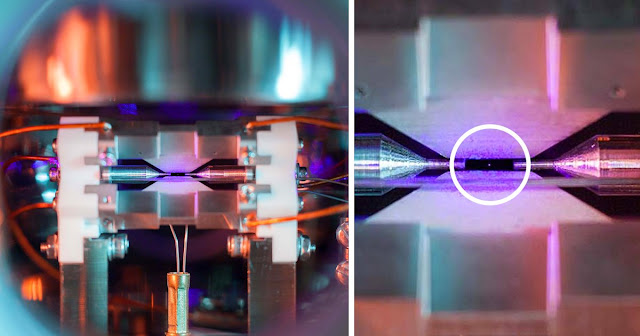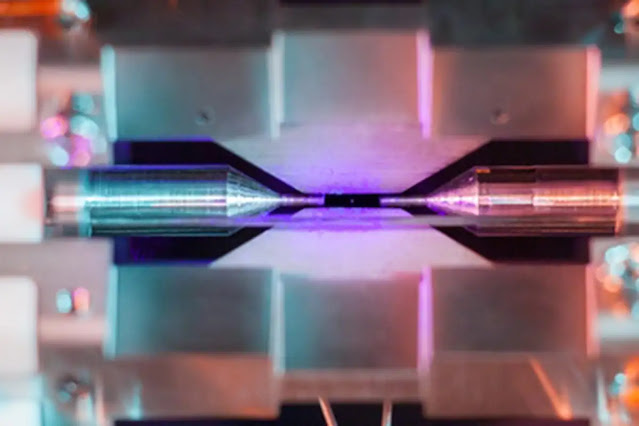The picture “Single Atom In An Ion Trap,” taken by David Nadlinger and featured above, won the Engineering and Physical Sciences Research Council’s scientific photography competition. A single strontium atom is embedded in a powerful electric field and then blasted by lasers, causing it to radiate light.
Despite the fact that the atom is visible, it is not the easiest to see. A faint blue dot can be seen in the center of the photo if you look properly. A blue-violet laser illuminates the strontium atom in this image.
Strontium is used in this equipment because of its size: one single atom has 38 protons and a diameter of a a few millionths of a millimeter. Normally, this would be too minuscule to see, but this configuration uses a creative approach to brighten the atom significantly.
A high-powered laser strikes a strontium atom in the snapshot, causing the electrons surrounding the atom to become more energetic. These charged electrons will occasionally emit light. An ordinary camera can photograph the atom if there are enough energized electrons emitting enough light.
However, this does not imply that you will be able to see the atom with your own eyes. This is a long-exposure photo, so even with all that laser light, it’s too faint to see without special equipment. However, given how small atoms are, staring at this photo is probably the closest you’ll come.

